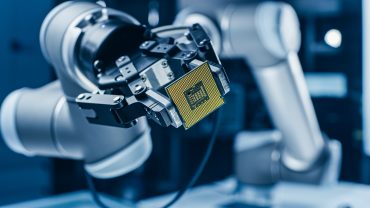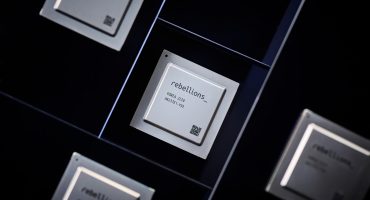
- AI Chips
- Enterprise AI
FuriosaAI Rejects Meta's $800M Bid, Wins Major LG Contract
5 minute read

South Korean AI chip startup FuriosaAI lands first enterprise customer as specialized processors gain market momentum
Key Takeaways
- $800 million acquisition rejected: FuriosaAI turned down Meta’s acquisition offer to maintain independence and control over its AI chip technology roadmap
- LG validates RNGD chip performance: Seven-month evaluation confirms 2.25x better inference performance than competitive GPUs on LG’s EXAONE models with significantly lower power consumption
- First major enterprise customer secured: LG AI Research approval opens pathway for RNGD servers across electronics, finance, telecommunications, and biotechnology sectors
Introduction
FuriosaAI secures its breakthrough enterprise contract after rejecting an $800 million acquisition from Meta Platforms. The Seoul-based AI chip startup receives final approval from LG AI Research for its RNGD accelerator following comprehensive performance testing.
The deal represents a significant validation for companies challenging Nvidia’s dominance in AI semiconductors. LG’s commitment to deploy RNGD chips across multiple business sectors signals growing enterprise appetite for specialized AI hardware alternatives.

Key Developments
LG AI Research completed a seven-month evaluation of FuriosaAI’s RNGD chip, focusing on performance metrics and energy efficiency benchmarks. The assessment tested the accelerator against LG’s ExaOne large language models across various enterprise workloads.
Chief Executive Officer June Paik confirms LG AI Research will integrate RNGD chips to support ExaOne model deployments. The partnership extends beyond initial testing to collaborative development of LG’s proprietary AI infrastructure.
FuriosaAI rejected Meta’s acquisition proposal due to strategic disagreements over technology direction and corporate structure. The company opts to maintain independence while pursuing a $48 million funding round to accelerate growth initiatives.
Market Impact
The LG validation demonstrates measurable performance advantages for specialized AI inference chips. RNGD delivers 2.25 times better inference performance than competitive solutions while consuming substantially less power than general-purpose alternatives.
FuriosaAI’s RNGD specifications include 48GB HBM3 memory and 256 TFLOPs performance at 150W power consumption. This compares favorably against Nvidia’s H100 architecture, which operates at 700W for similar workloads.
The partnership positions FuriosaAI for broader enterprise adoption as companies seek alternatives to dominant GPU suppliers. LG’s public endorsement provides credibility for approaching additional enterprise customers across key verticals.
Strategic Insights
FuriosaAI’s focus on inference-optimized architecture addresses specific enterprise pain points around power efficiency and total cost ownership. The tensor contraction processor design offers flexibility advantages over traditional matrix multiplication approaches.
The rejection of Meta’s offer reflects confidence in long-term market expansion opportunities within AI semiconductor segments. Independent operation allows FuriosaAI to capture more value as specialized chip demand accelerates across enterprise markets.
LG’s adoption signals broader industry trends toward supply chain diversification away from single-vendor dependencies. Major technology companies increasingly prioritize specialized solutions over general-purpose hardware for specific AI workloads.
Expert Opinions and Data
“After extensively testing a wide range of options, we found RNGD to be a highly effective solution for deploying ExaOne models,” states Kijeong Jeon, product unit leader at LG AI Research. The evaluation highlighted compelling performance benefits alongside dramatic reductions in total cost ownership.
According to Bloomberg and ET News reports, the approval process included rigorous testing protocols across multiple model configurations. RNGD demonstrated efficient operation running Llama 3.1 70B models on eight accelerator cards compared to larger hardware requirements from competitors.
Founded in 2017 by former Samsung and AMD expert June Paik, FuriosaAI completed a $60 million Series B funding round before securing the LG partnership. The company’s tensor contraction architecture delivers up to 512 TFLOPS of FP8 performance with 180W thermal design power specifications.
Business Implications
The LG partnership establishes FuriosaAI’s commercial viability in enterprise AI infrastructure markets. Revenue generation from RNGD server deployments supports the company’s independent growth strategy following Meta’s acquisition rejection.
FuriosaAI plans official RNGD chip launches later this year, with LG serving as a reference customer for broader market penetration. The collaboration spans electronics, finance, telecommunications, and biotechnology applications requiring efficient AI processing capabilities.
Enterprise adoption of specialized AI chips accelerates as companies prioritize workload-optimized solutions over general-purpose alternatives. FuriosaAI’s success demonstrates market opportunities for focused innovation in AI semiconductor segments beyond traditional GPU architectures.







